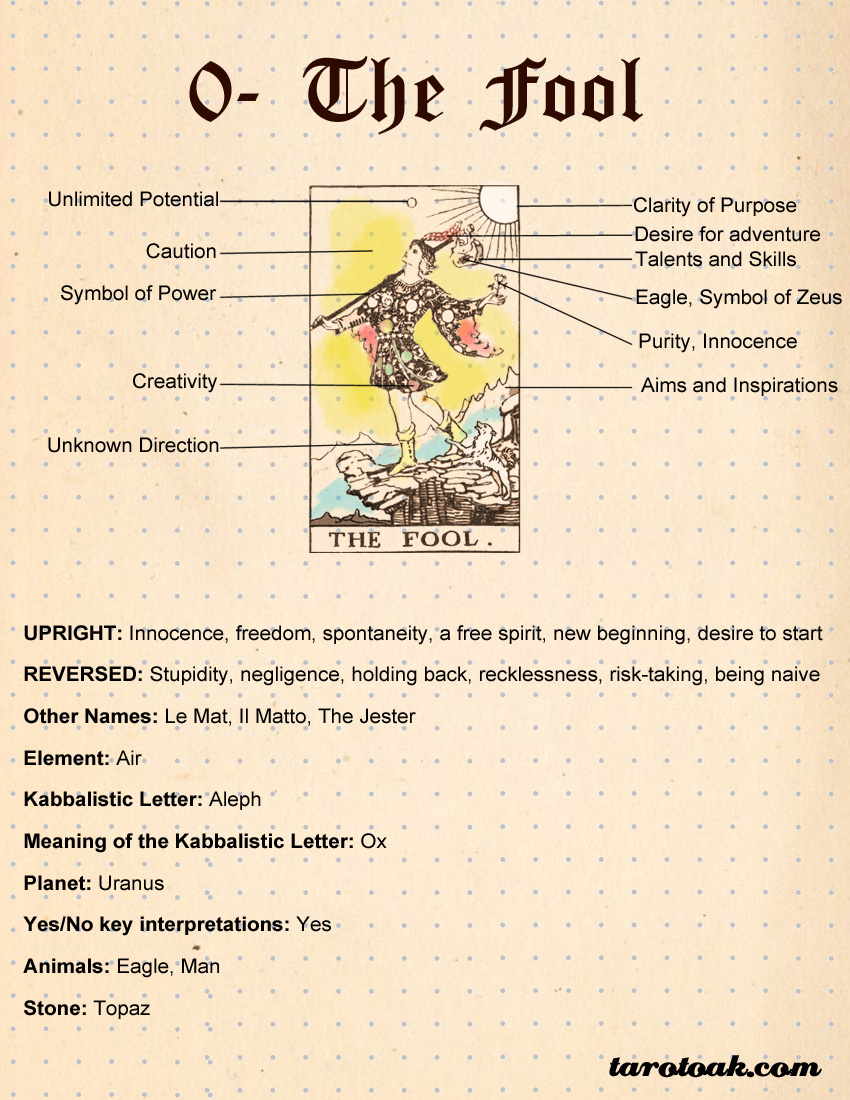The Fool Tarot card, when viewed in an upside-down position, offers a unique perspective that resonates particularly well through a Christian lens. This card often embodies themes of new beginnings, innocence, and spontaneity. However, when it is inverted, its meanings transform, evolving into caution, naivety, and abandonment of faith. Exploration of these themes reveals profound insights into the pitfalls of life when one strays from spiritual grounding.
To fully grasp the implication of The Fool card reversed, it is essential to appreciate the characteristics of the upright Fool. An icon of boundless potential, The Fool stands at the precipice of a cliff, symbolizing the courage to embark upon an uncharted journey. His innocence invites exploration and adventure, yet the reversal of this card facilitates a deeper examination of its apathetic counterparts. Here, the narrative takes a turn, leading to an exploration of existential hazards.
From a Christian perspective, the upside-down Fool becomes an emblem of spiritual folly. It is as if the upside-down positioning reflects a person who steps onto the path with reckless abandon, blindly ignoring divine guidance. The appeal of this card lies in its ability to serve as a cautionary tale, urging believers to reflect on their faith and choices. When viewed this way, it serves to illuminate the spiritual blindness that can occur when one becomes detached from God’s teachings.
One might consider the metaphor of a ship adrift at sea without a compass. Much like this ship, an individual influenced by the reversed Fool risks losing their way, vulnerable to the tumultuous waves of doubt and uncertainty. They may chase ephemeral pleasures or transient goals, forgetting the foundational virtues that anchor their faith. It evokes the notion of missing one’s mark—akin to a Christian who forsakes their spiritual journey, opting for momentary gratification instead of long-lasting fulfillment.
Moreover, the card signifies a lack of accountability, often manifesting in decisions steeped in impulsivity. This behavior can lead to moral lapses, echoing Biblical admonitions against folly. Proverbs 12:15 states, “The way of the fool is right in his own eyes, but a wise man listens to advice.” The inverted Fool personifies the refusal to heed wisdom, invoking the spirit of hubris. In Christian discourse, there lies a stark reminder of the cost of pride—as self-assuredness can blind one to the whispers of the divine.
In a broader context, one may interpret the upside-down Fool as a warning against forsaking community and fellowship. It illustrates an individual who may have lost a connection with their church or spiritual family, resulting in isolation. Just as the flock is meant to surround and support the shepherd, Christians are called to reinforce one another’s faith journeys. Isolating oneself leads to the darkness of doubt, reminiscent of Peter when he walked on water. Doubt led him to sink, an analogy for how spiritual disconnection can compromise one’s resolve. The Fool’s upside-down position echoes this experience: a person out of harmony with their faith is akin to wandering in an emotional desert.
The theme of introspection resonates throughout this interpretation. The reversed Fool urges self-examination and contemplation of one’s spiritual trajectory. Life’s decisions should be reflective, guided by foundational tenets of faith and ethics. As Christians navigate personal and collective challenges, embracing the inverted Fool serves as a reminder to return to introspective practices. Are personal choices aligning with the broader Christian ethos? Are there moments where one’s actions reflect a detachment from divine truths?
Therefore, the card invites a deeper engagement with the principles of faith, emphasizing the necessity of grounding oneself in Scriptural wisdom. The potential for folly is an ever-present reality. However, within Christianity, there is also the redeeming grace of repentance. The upside-down Fool does not symbolize finality; rather, it points towards a potential redo—an opportunity to realign with God’s will. Just as the Prodigal Son returned home, so too can believers rise from spiritual slumber and acknowledge their missteps.
The Fool reversed also intertwines with themes of fearlessness that crosses into recklessness. Christians are urged to exercise faith boldly, but this must be tempered with discernment. It is possible to step boldly into the unknown, yet it becomes imperative to do so with the understanding of God’s overarching plan—a plan that seeks to impart hope and fresh purpose. The tension lies in recognizing when faith becomes foolhardy and when it embodies the strength to embrace uncertainty underpinned by divine assurance.
In essence, the reversed Fool Tarot card, when viewed through a Christian perspective, serves as a prompt—an invitation to reflect upon the follies that can arise when one neglects their spiritual foundations. It exemplifies folly not merely as clumsiness but rather as a deliberate ignoring of life’s sacred cords. While it highlights the gravity of such departures, it equally offers a pathway back to grace, urging a return to pursuit over perfection, to community over isolation, and ultimately back into the arms of faith. Thus, The Fool upside-down is not merely a warning sign; it is also a guiding beacon urging believers toward a redemptive journey.







Leave a Comment